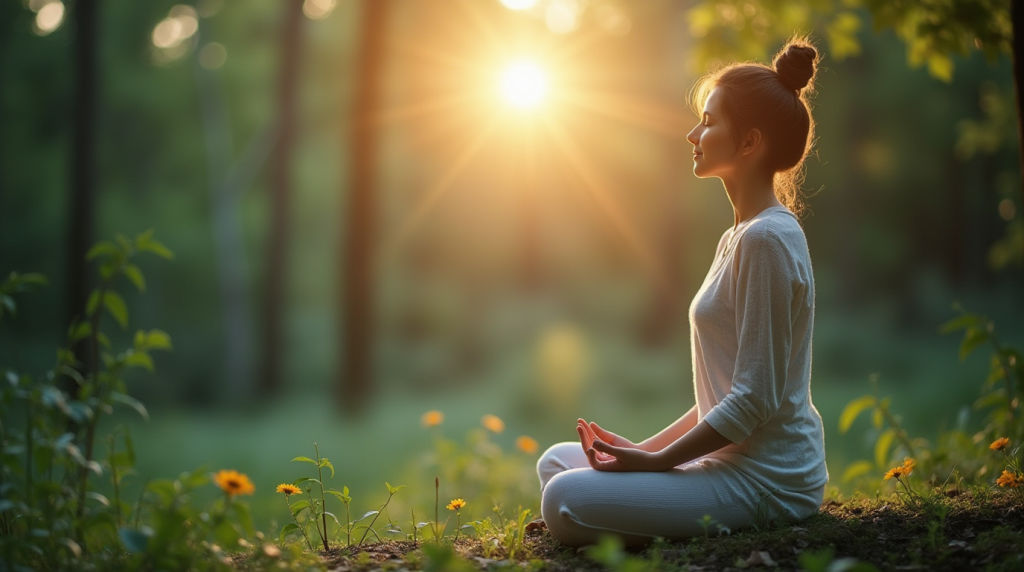The Growing Need for Stress Management
In today’s fast-paced world, stress and anxiety have become pervasive challenges. According to the World Health Organization (WHO), 1 in 4 people globally will experience a mental health disorder at some point in their lives, with anxiety and stress-related conditions being the most common.

Chronic stress doesn’t just affect mental well-being—it can lead to serious physical health problems, including heart disease, weakened immunity, and digestive disorders (American Psychological Association, 2022). The good news? Science-backed strategies can help manage and even reduce stress and anxiety effectively.
This comprehensive guide explores five proven techniques to regain control over stress, improve emotional resilience, and enhance overall well-being.
1. Mindfulness and Meditation: Rewiring the Brain for Calm
The Science Behind Mindfulness
Mindfulness—a practice rooted in ancient Buddhist traditions—has gained modern scientific validation. Research from Harvard Medical School shows that regular mindfulness meditation reduces cortisol (the stress hormone) by up to 30% and increases gray matter in brain regions linked to emotional regulation.
How to Practice Mindfulness Daily
- Guided Meditation: Apps like Headspace or Calm offer structured sessions.
- Deep Breathing (4-7-8 Technique): Inhale for 4 seconds, hold for 7, exhale for 8.
- Body Scan Meditation: Focus on relaxing each muscle group sequentially.
It is suggested to embed a YouTube video here: 5-Minute Mindfulness Meditation for Stress Relief
Internal Link Suggestion:
For more on mindfulness techniques, check out our guide on Mindfulness-Based Stress Reduction (MBSR).
2. Physical Exercise: The Natural Stress Reliever
Why Exercise Works
Physical activity triggers the release of endorphins, the body’s natural mood boosters. A 2023 study in The Lancet Psychiatry found that people who exercise regularly report 43% fewer days of poor mental health.
Best Exercises for Stress Relief
- Aerobic Exercise (Running, Swimming): Increases serotonin levels.
- Yoga: Combines movement with breath control.
- Strength Training: Reduces tension and improves sleep.
Statistic:
According to the Mayo Clinic, just 30 minutes of moderate exercise daily can lower anxiety symptoms by 40%.
3. Cognitive Behavioral Techniques (CBT): Changing Thought Patterns
Understanding CBT
Cognitive Behavioral Therapy (CBT) is a structured approach that helps individuals identify and reframe negative thought patterns. The National Institute of Mental Health (NIMH) reports that CBT is effective for 60-80% of people with anxiety disorders.
Practical CBT Strategies
- Thought Records: Track and challenge irrational thoughts.
- Behavioral Activation: Replace avoidance with positive actions.
- Exposure Therapy: Gradually face fears in a controlled way.
Internal Link Suggestion:
Learn more about how CBT can help with anxiety.
4. Social Connection: The Power of Support Systems
Why Relationships Matter
Loneliness exacerbates stress, while strong social ties act as a buffer. A Harvard study found that people with strong social support experience 50% less stress-related health issues.
Ways to Strengthen Connections
- Schedule Regular Check-ins with friends/family.
- Join Support Groups (online or in-person).
- Practice Active Listening to deepen bonds.
Statistic:
The American Psychological Association notes that social isolation increases the risk of premature death by 26%.
5. Sleep Optimization: The Foundation of Mental Resilience
The Sleep-Stress Cycle
Poor sleep worsens anxiety, and anxiety disrupts sleep—a vicious cycle. The Sleep Foundation states that adults need 7-9 hours nightly for optimal mental health.
Tips for Better Sleep
- Maintain a Consistent Sleep Schedule
- Limit Screen Time Before Bed (blue light disrupts melatonin).
- Create a Relaxing Bedtime Routine (reading, herbal tea).
Explore our guide to improving sleep hygiene : HERE
Conclusion: Building a Stress-Resistant Lifestyle
Managing stress and anxiety isn’t about eliminating challenges—it’s about building resilience. By incorporating these five strategies—mindfulness, exercise, CBT, social connection, and quality sleep—you can create a sustainable defense against daily stressors.
Start small: Choose one technique to implement today, then gradually add others. For more expert-backed mental health resources, visit https://healthzone.top
References & Further Reading
- WHO Mental Health Report
- Harvard Study on Mindfulness
- The Lancet: Exercise & Mental Health
- NIMH on CBT Effectiveness
By adopting these evidence-based strategies, you’re not just reducing stress—you’re rewiring your brain for long-term calm and clarity
